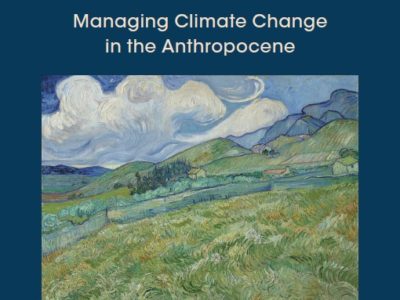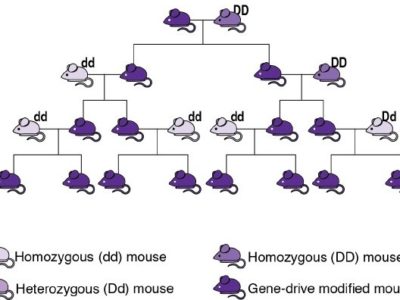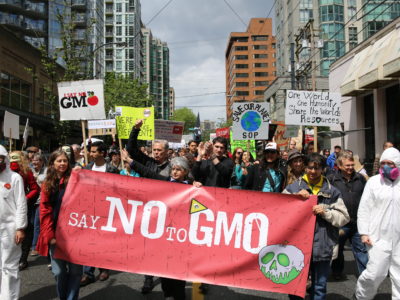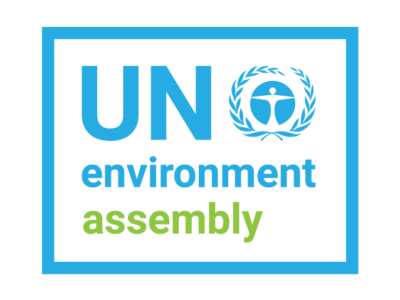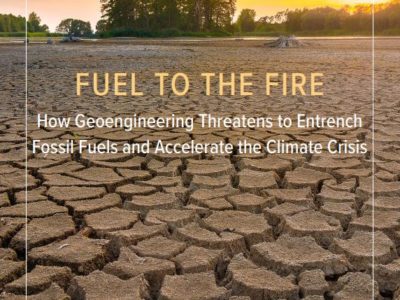Environmental Science
The Governance of Solar Geoengineering: Managing Climate Change in the Anthropocene
My book is now available!
I interrupt my ongoing blog series on new biotechnologies and their governance (1, 2, 3) to announce that my book The Governance of Solar Geoengineering Managing: Climate Change in the Anthropocene is available today from Cambridge University Press. The brief description is: Climate change is among the world’s most important problems, and solutions based on …
CONTINUE READINGGenetically Modifying Wild Populations
The third in a series examines powerful new gene drive tools
In my previous two posts, I introduced what I call first, second, and third generation genetically modified organisms: (1) GM bacteria for diverse, mostly indoor purposes; (2) GM crops and agricultural animals; and (3) GMOs that would be intentionally placed into natural environments, where they would live, reproduce, and transmit their modified genes to offspring. …
Continue reading “Genetically Modifying Wild Populations”
CONTINUE READINGCould Genetically Modified Organisms Help Conserve Biodiversity?
The second in a series examines GMOs intentionally released into the wild
Last week, I introduced what I call “first generation” genetically modified organisms (GMOs) – altered bacteria for diverse, mostly indoor purposes – and “second generation” ones – GM crops and agricultural animals. Here, I describe third generation GMOs, which are those that would be intentionally placed into natural environments, where they would live, reproduce, and …
Continue reading “Could Genetically Modified Organisms Help Conserve Biodiversity?”
CONTINUE READINGGenetically Modified Organisms Return to the International Policy Agenda
This first in a series begins by looking back at GMOs and environmental law
Although the big news in international biodiversity this week was the release of the summary of the first global assessment from a relatively new UN-affiliated body, the topic of another report warrants attention as well. Yesterday the International Union for Conservation of Nature (IUCN) published its findings on “the potential positive and negative impacts of synthetic …
Continue reading “Genetically Modified Organisms Return to the International Policy Agenda”
CONTINUE READINGWhat Else Should Congress Investigate?
Understandably, a lot of attention is focused on the White House. But other issues cry out for investigation.
Every day, it seems that there is a headline about some investigatiion involving tcampaign finance violations, the White House, or the actions of some foreign power. Perhaps that’s all the bandwidth that Congress has. But there are other areas calling out for inquiry. Here are just a few: CAFE Standards. The car industry asked for …
Continue reading “What Else Should Congress Investigate?”
CONTINUE READINGCalifornia Adopts New, Welcome Wetlands Protection Rules
State Fills Void Left By Trump Administration’s Weakening of Federal Wetlands Standards
This week California’s State Water Resources Control Board adopted important new rules to protect the state’s remaining wetlands resources. Enacted after over a decade of Board hearings, workshops and deliberation, those rules are overdue, welcome and critically necessary. Their adoption is particularly timely now, given the Trump Administration’s wholesale assault on and erosion of federal …
Continue reading “California Adopts New, Welcome Wetlands Protection Rules”
CONTINUE READINGGoverning Geoengineering at the United Nations? No, at Least Not Now
A proposed resolution falters at the UN Environment Assembly
At this week’s UN Environment Assembly, countries’ representatives debated a draft resolution regarding climate geoengineering. Unable to come to agreement, it was withdrawn Wednesday. This is not surprising to me, as — for the most part — leaders presently lack political incentives to take action. I am also not particularly disappointed, because a counter-productive resolution seemed fairly …
Continue reading “Governing Geoengineering at the United Nations? No, at Least Not Now”
CONTINUE READINGA Time For Privacy: California Legislature Moves to Protect Academic Research
In an era defined in Washington by lies and the suppression of scientific research, California is positioning itself as a defender of facts and free inquiry. Assemblymember Laura Friedman (D, Los Angeles) this week introduced Assembly Bill 700, a bill sponsored by the Union of Concerned Scientists (UCS) to address the harm inflicted on public …
Continue reading “A Time For Privacy: California Legislature Moves to Protect Academic Research”
CONTINUE READINGDoes the Fossil Fuel Industry Support Geoengineering?
A misleading new report from Center for International Environmental Law and the Heinrich Boell Foundation demeans the discourse
Geoengineering is controversial in the climate change community, and understandably so. Proposed interventions like negative emissions technologies (a.k.a. carbon dioxide removal) and solar geoengineering (a.k.a. solar radiation management or SRM) — which some writers group together as “geoengineering” — involve large-scale intervention in the climate system that could have adverse physical or social impacts. At …
Continue reading “Does the Fossil Fuel Industry Support Geoengineering?”
CONTINUE READINGNo Restrictive Language on Gene Drives
Parties to the Convention on Biological Diversity reject a moratorium-like decision
The recent news in international environmental negotiations has been dominated by this month’s Conference of Parties (COP) of the UN Framework Convention on Climate Change. (See UCLA’s Ted Parson setting the stage, the New York Times article, and Carbon Brief’s detailed report.) The recent COP of the Convention on Biological Diversity (CBD) flew somewhat under the …
Continue reading “No Restrictive Language on Gene Drives”
CONTINUE READING



